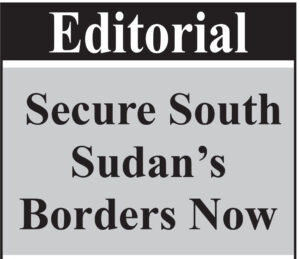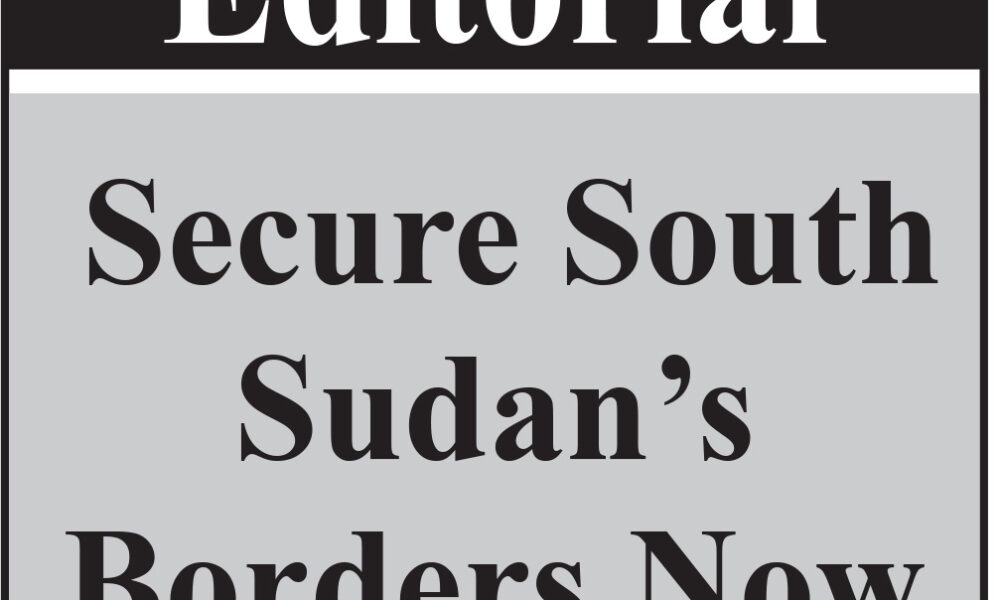
Members of the Transitional National Legislative Assembly (TNLA) are right to demand urgent action on South Sudan’s borders. A nation without secure and recognized boundaries risks not only its sovereignty but also the safety and dignity of its people.
As lawmakers from across the ten states and administrative areas voiced concern over encroachments and shifting borders, the silence from the executive has become deafening.
From Kajo-keji to Nadapal, the stories are consistent: neighboring countries are redrawing lines, deploying forces, and manipulating GPS coordinates deep into South Sudanese territory. These are not mere technical oversights; these are existential threats to national sovereignty.
The government cannot remain silent while citizens are displaced and soldiers are stationed at the frontlines without basic necessities. Border security is not only a military matter; it is a legal, political and humanitarian issue.
The Assembly’s call to reaffirm the 1956 borders, produce a legitimate national map, and enshrine boundaries in the permanent constitution is a foundational step which must be complemented by swift executive action. Diplomacy backed by clarity, resolve, and constitutional authority must lead the way not militarism.
The motion rightly emphasized that sovereignty is not just a legal construct. The government must prioritize border communities, equip deployed forces adequately, and ensure that no South Sudanese feels abandoned. Failure to act will embolden further encroachment, deepen local suffering, and weaken the state’s authority.
Parliament has sounded the alarm not just about lines on a map but about dignity and the future of a nation still defining itself. The executive must act now.
There is need for both diplomatic and military intervention in order to secure borders and protect the civilians at the borders.



